New York Times: Amazon, in Hunt for Lower Prices, Recruits Indian Merchants
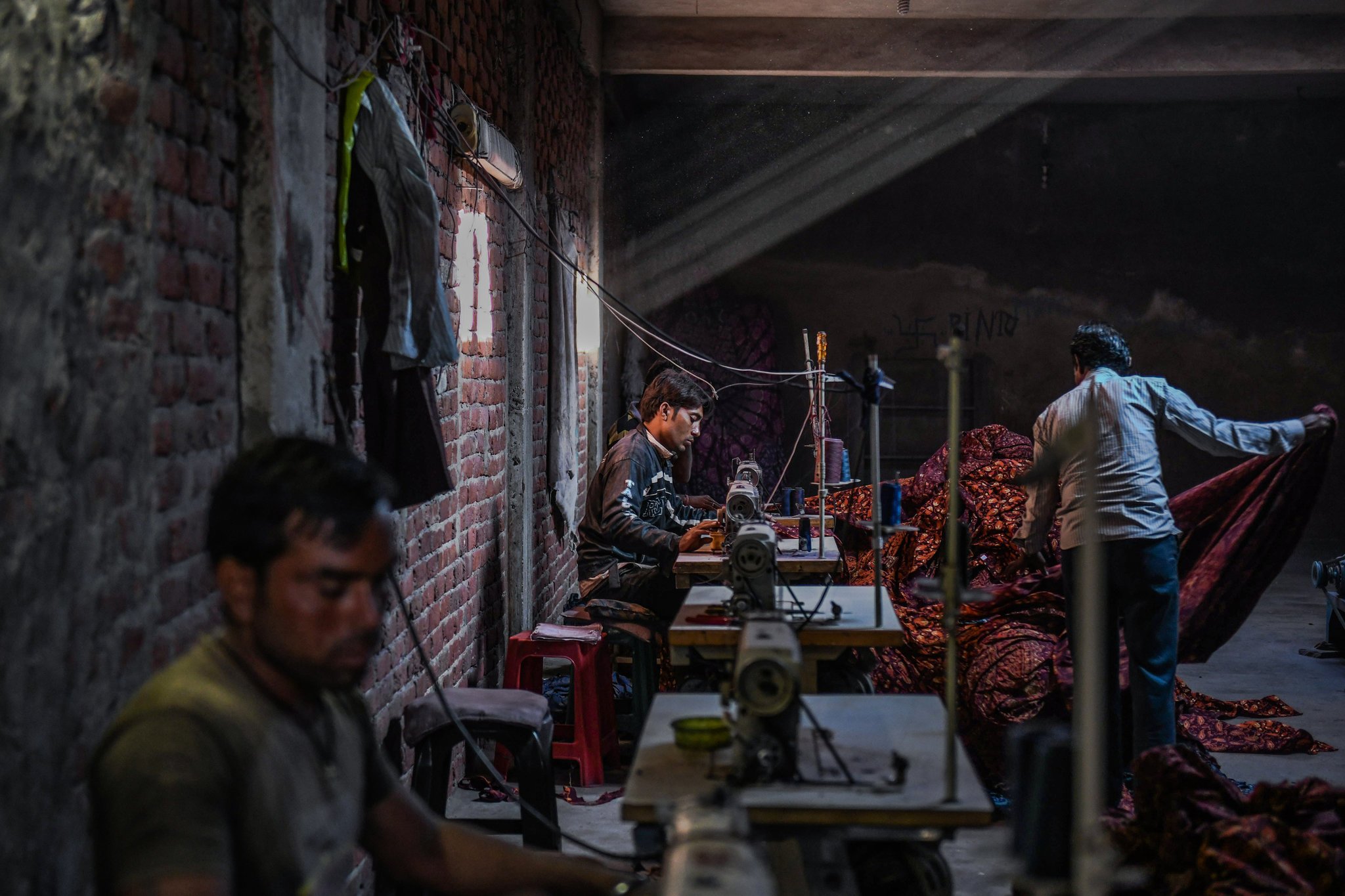
Workers at a factory in Jaipur, India, making bedsheets for The Boho Street, an Indian company that sells its products on Amazon. Credit Rebecca Conway for The New York Times
Thousands of Indian sellers have shipped bedding, jewelry, kitchenware and clothing to Amazon warehouses to serve bargain-hunting Americans.
By VINDU GOEL | NOV. 26, 2017
MUMBAI, India — Americans shopping on Amazon.com this holiday season may find that the best deals for popular gifts like leather shoes and luxury bedding are coming from an unexpected source: Indian merchants.
Amazon, always on the lookout for ways to lower prices, has been aggressively recruiting Indian vendors to sell their goods directly on the e-commerce giant’s American site. At least 27,000 Indian sellers have signed up since Amazon began the outreach two years ago. They range from giants like the Tata Group, a conglomerate that hawks its Titan watch line on the site, to smaller firms like The Boho Street, a peddler of vegan tapestries, incense and handcrafted copper mugs.
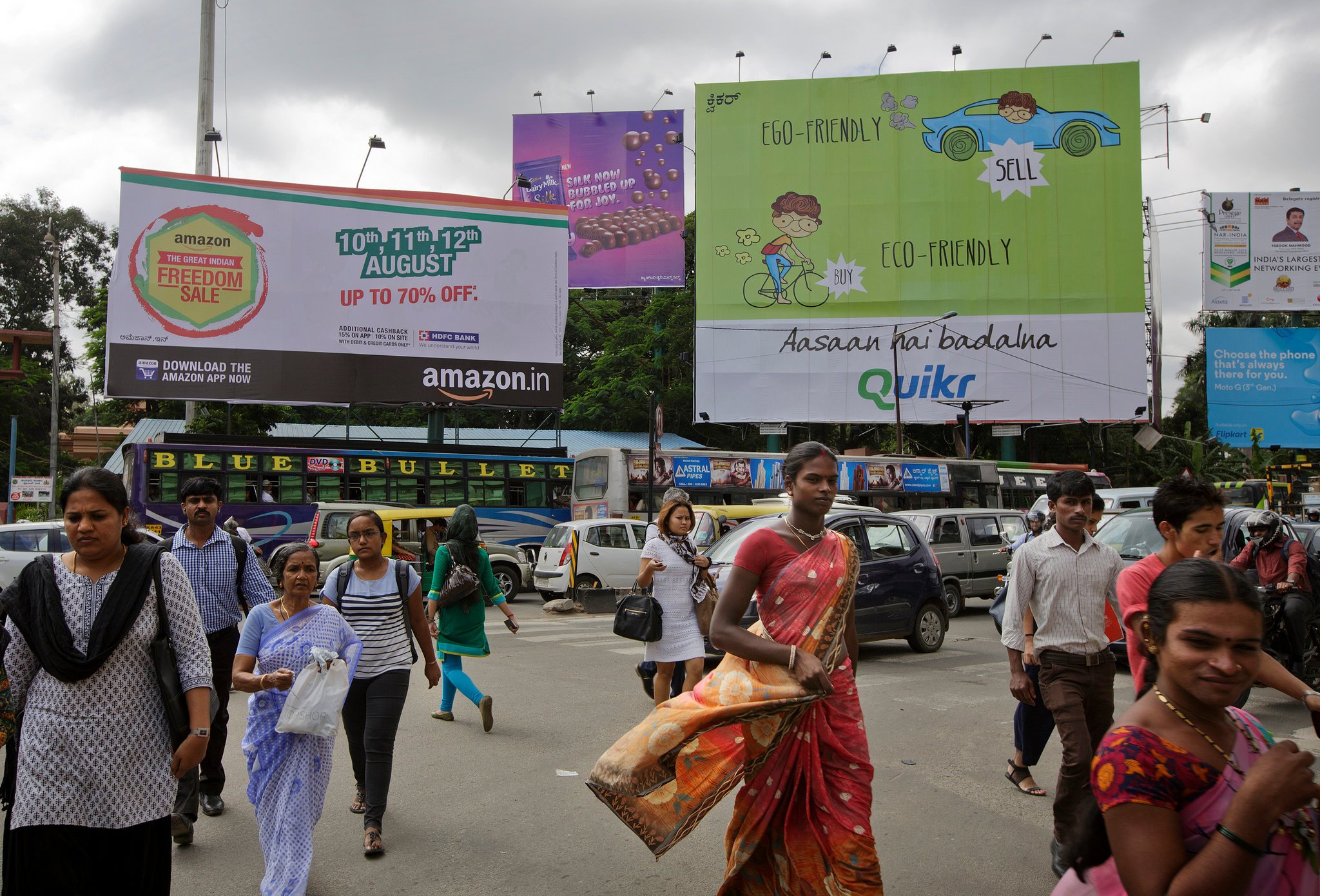
Amazon’s e-commerce site in India, Amazon.in, is the second largest in the country. But it is only one piece of the company’s efforts there. Credit Kuni Takahashi for The New York Times
The result is lower prices for consumers because selling foreign goods through the e-commerce giant cuts out some of the usual costs of a traditional importer. But it is also beneficial to Amazon, which gets to add to its enormous product lineup and charge sellers hefty fees.
For Indian merchants like Abhishek Middha, founder of The Boho Street, Amazon provides almost turnkey access to the American market.
“Amazon handles everything in the U.S., from shipping to customer handling, so we can focus on making the best quality products and adding more products to our catalog,” he said.
Although Mr. Middha used to sell on other marketplaces like Etsy, he switched almost entirely to Amazon two years ago because of its vast scale and suite of services. Last year, his sales on Cyber Monday spiked to four times the usual level, helping to propel his annual revenue to $1.9 million. On Black Friday this year, his sales tripled compared with the previous day.
“Amazon taught us how to create a brand,” he said.
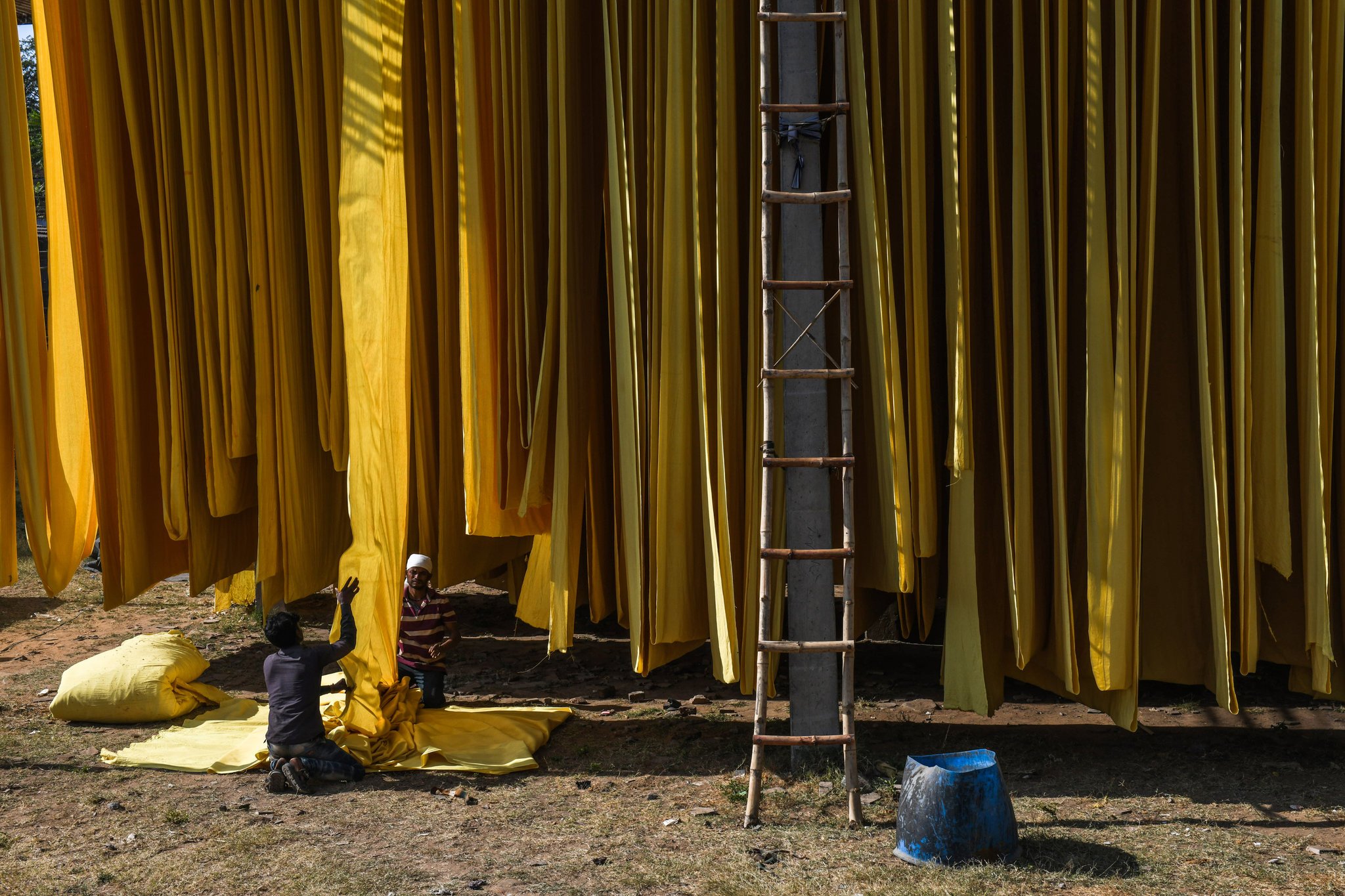
Workers removing fabric after it was dyed and hung to dry at the factory in Jaipur that produces bedsheets for The Boho Street. Credit Rebecca Conway for The New York Times
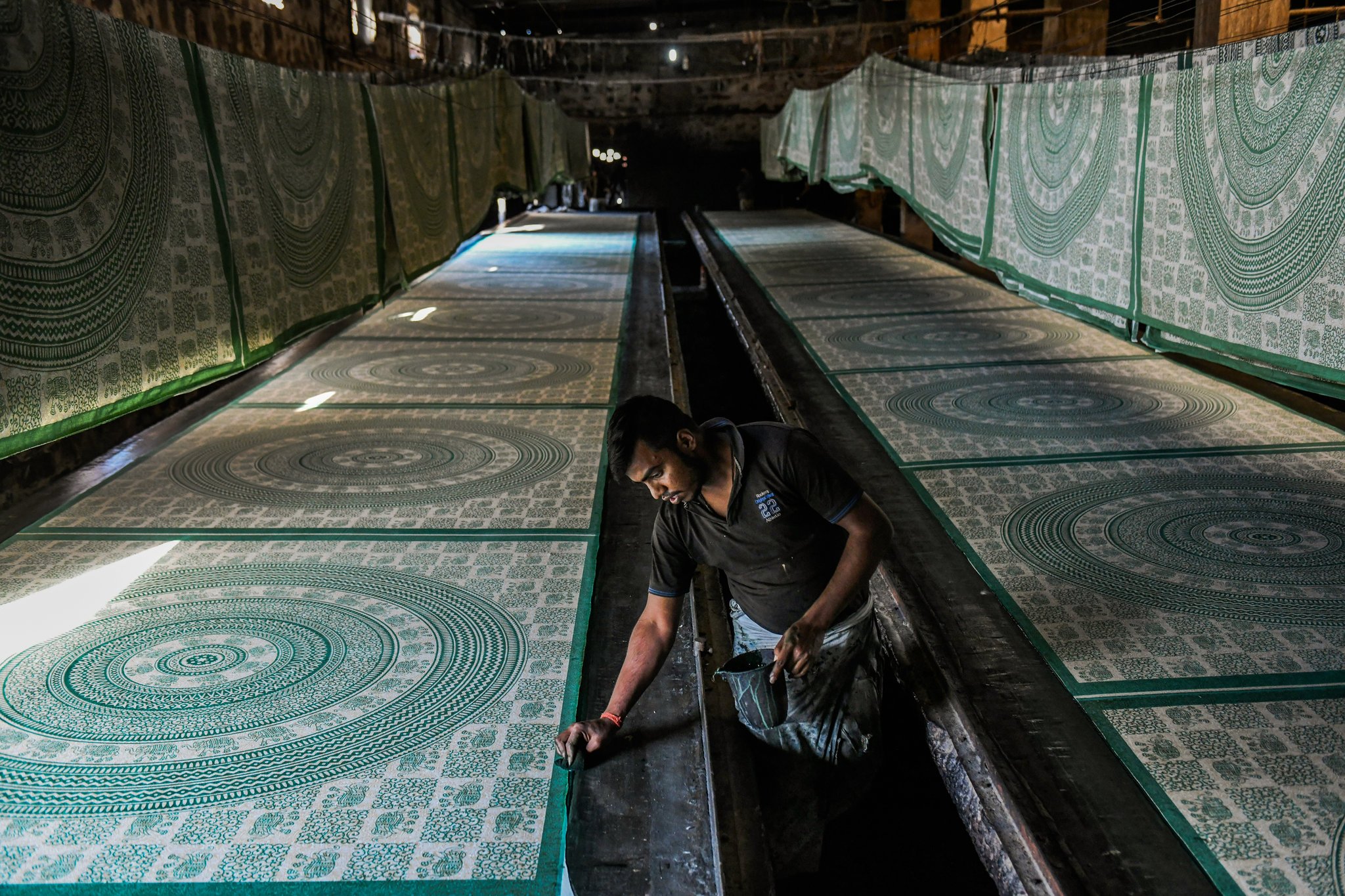
A border being painted on sheets for The Boho Street company. “Amazon taught us how to create a brand,” said Abhishek Middha, the company’s founder. Credit Rebecca Conway for The New York Times
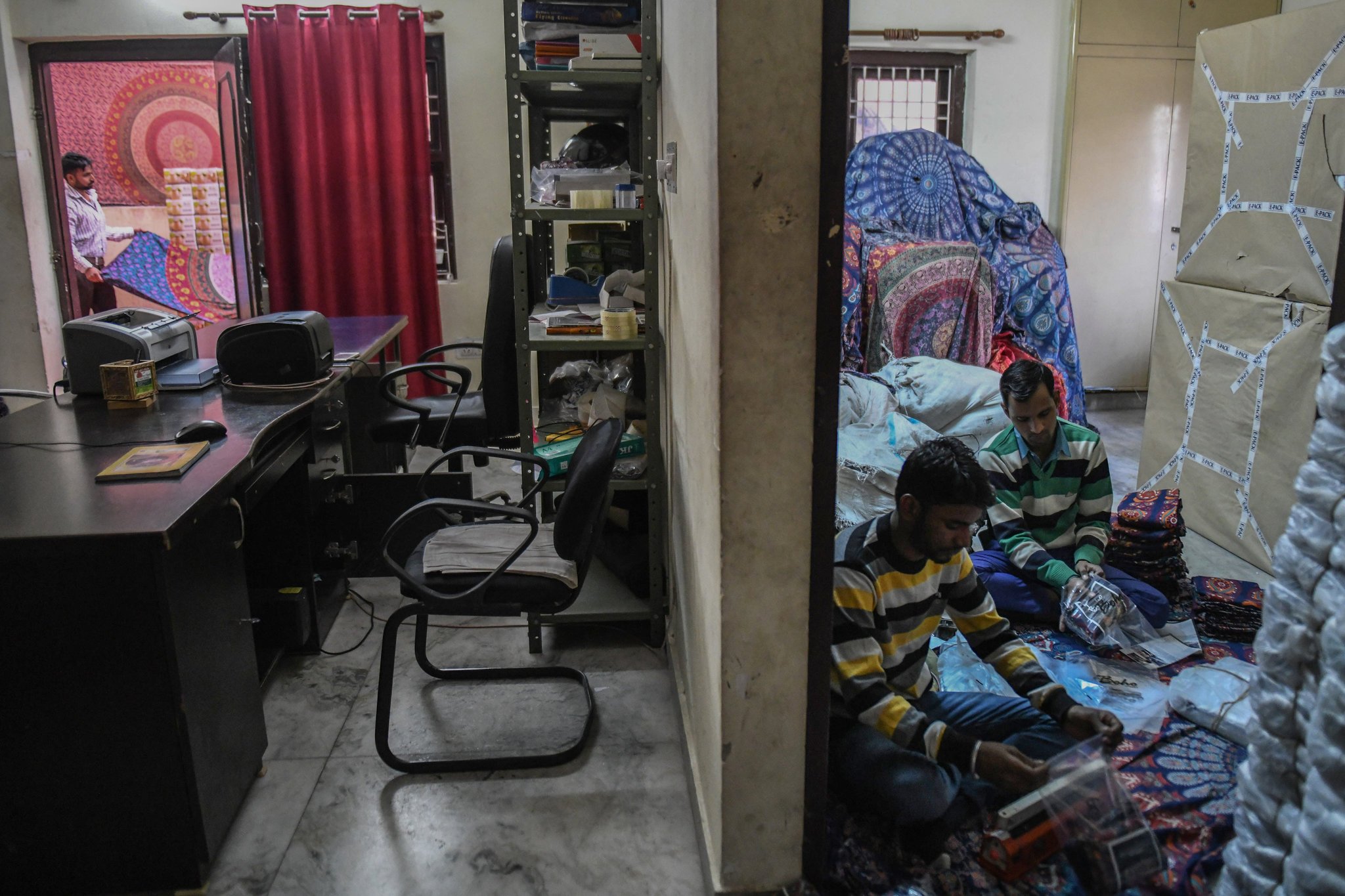
When The Boho Street switched almost entirely to selling on Amazon in the United States, its sales rose sharply. At least 27,000 Indian merchants now sell products on Amazon. Credit Rebecca Conway for The New York Times
The growth of Amazon’s Indian global seller program shows how sophisticated the Seattle retailer’s strategy has become. The company operates India’s second-largest e-commerce site, Amazon.in, which caters to the country’s growing base of online consumers. But Amazon also sees India as a source of cheap and high-quality products that can be sold on its American site, especially in crucial categories like apparel, to help it take market share from competitors like Walmart.
Abhijit Kamra, who heads Amazon’s global selling program in India, said that Americans already buy many products that are made in India, such as cotton towels.
“What we are trying to do is compress the global supply chain and bring sellers and customers closer,” he said in a phone interview. Some of the 75 million Indian products on the main Amazon.com site, such as saris, tend to attract customers of Indian heritage. But other categories, like jewelry and health products, have wider appeal, Mr. Kamra said.
Amazon has listed many of its Indian products on a special page, Amazon.com/India, to help customers in the United States find them. For the holiday selling season that kicked off with Black Friday, the company spent months helping sellers prepare by stockpiling goods in the United States and programming special “lightning deals” to generate shopper interest. In some cases, the company even lent sellers money for inventory.
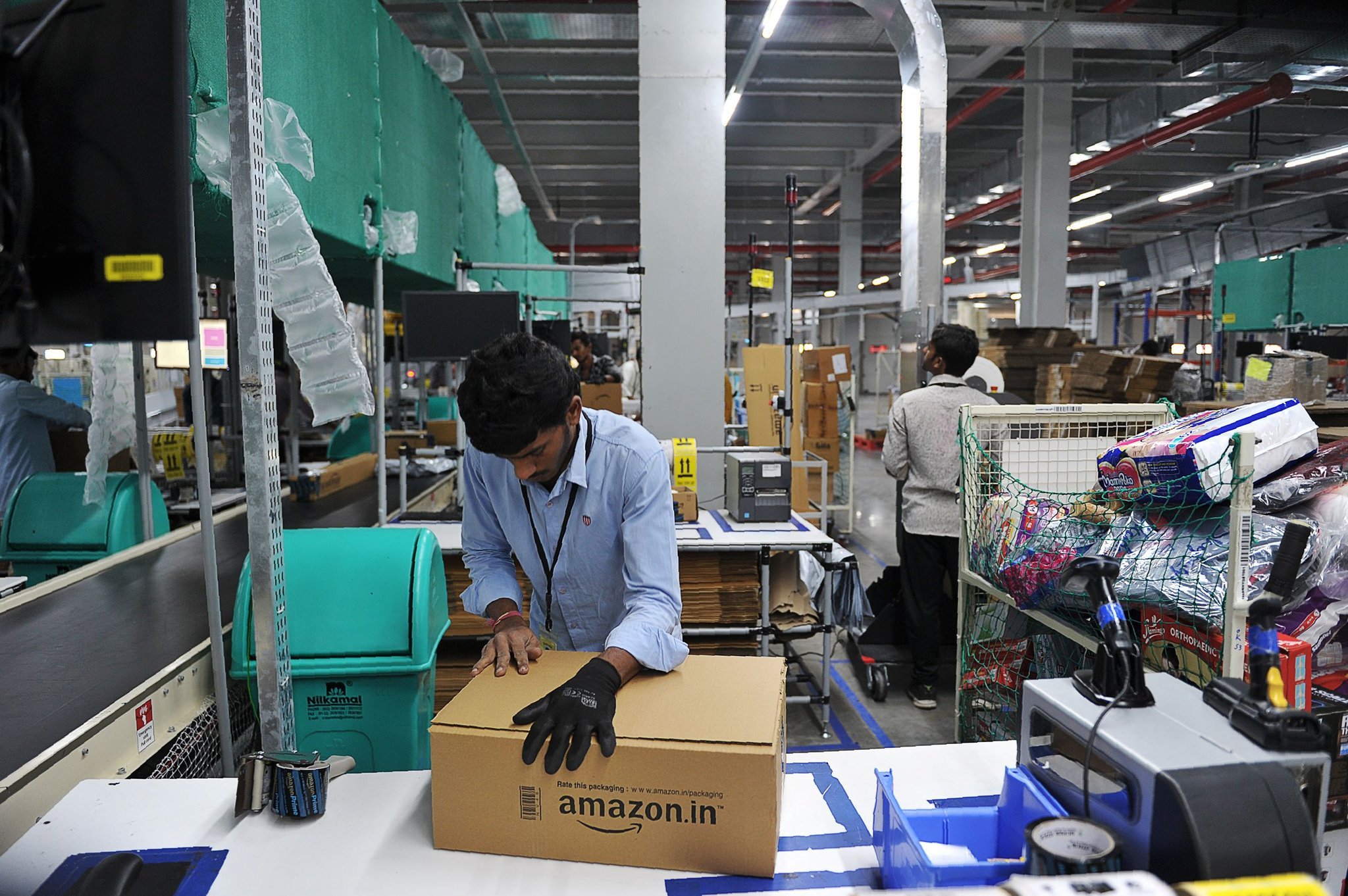
Amazon.in caters to the country’s growing base of online consumers. But local merchants say it is far more appealing to sell products on Amazon.com. Credit Noah Seelam/Agence France-Presse — Getty Images
The India program is quite lucrative for Amazon’s bottom line. A merchant who chooses the full array of Amazon services, including buying advertising and contracting with the company to store and deliver the products from Amazon’s American warehouses, typically hands over about one-third of the item’s sale price in fees and commissions.
These third-party sellers are crucial to Amazon’s business, said Aaron Cheris, head of the Americas retail practice at Bain, a global management consulting firm. “They make more money on their third-party stuff than on the stuff they sell themselves,” he said in a phone interview. Amazon says that more than half of the units sold on its shopping sites come from such outside sellers.
To attract customers on a crowded site like Amazon.com, it helps to have a niche. For Krishna Murari, the founder of Rajlinen, that niche is luxury cotton bedsheets for the odd-size beds in recreational vehicles.
“I have never seen an R.V.,” said Mr. Murari, a former electronics engineer. But he learned about the specialty sheets from an American company that sells custom mattresses, and then studied images of camper mattresses. Now his factory in Indore, in central India, sells more than 10,000 R.V. bed sets per year in the United States, many of them custom sewn.